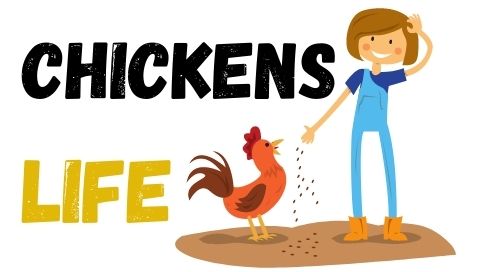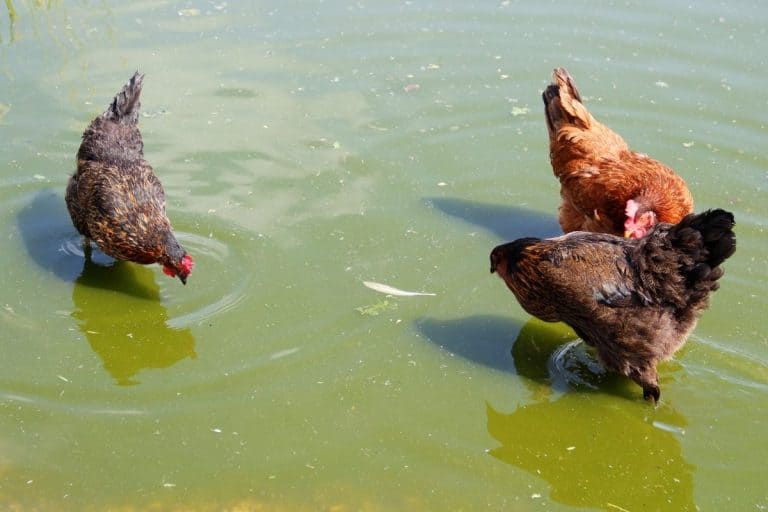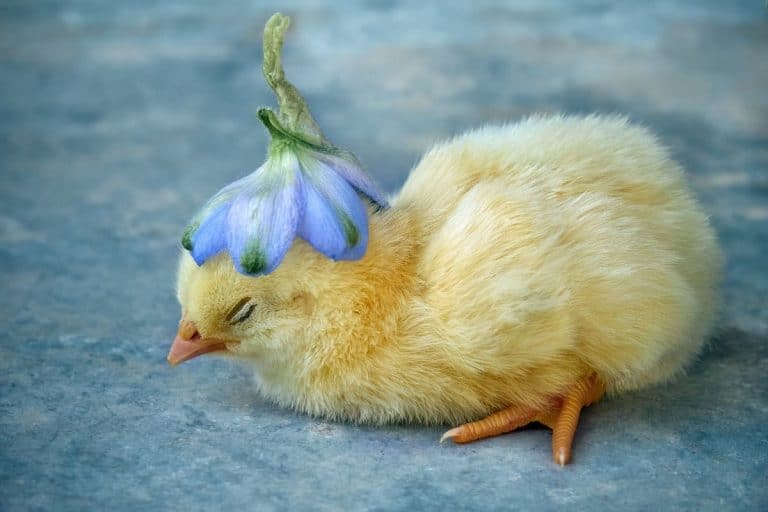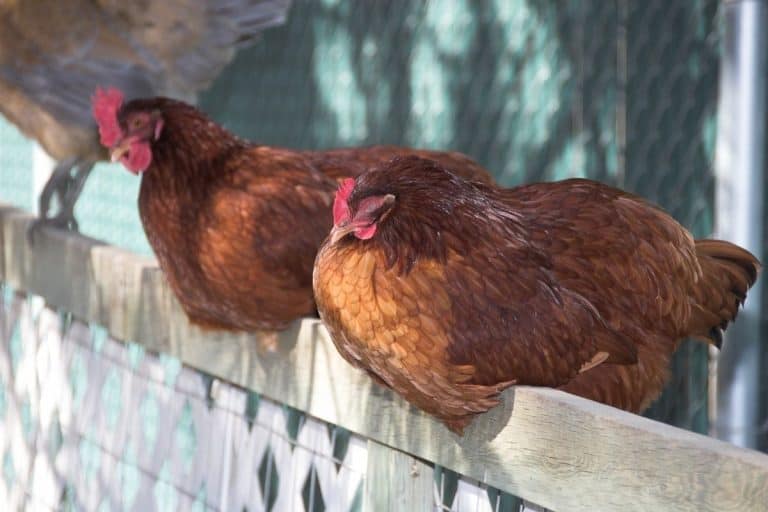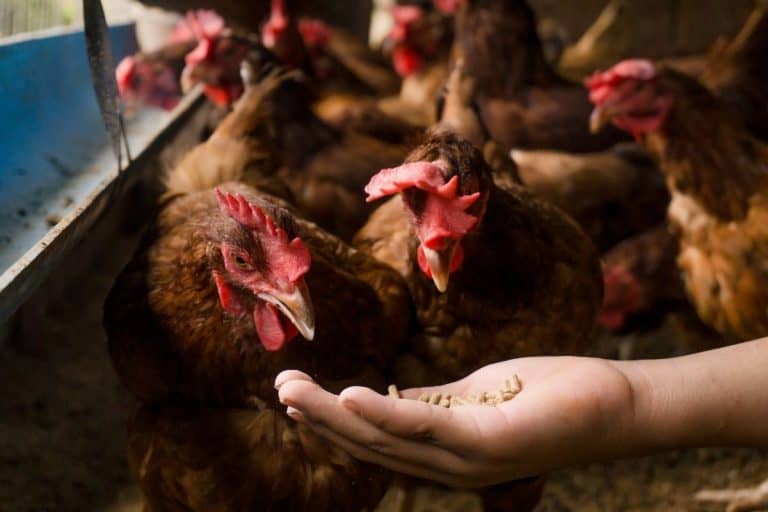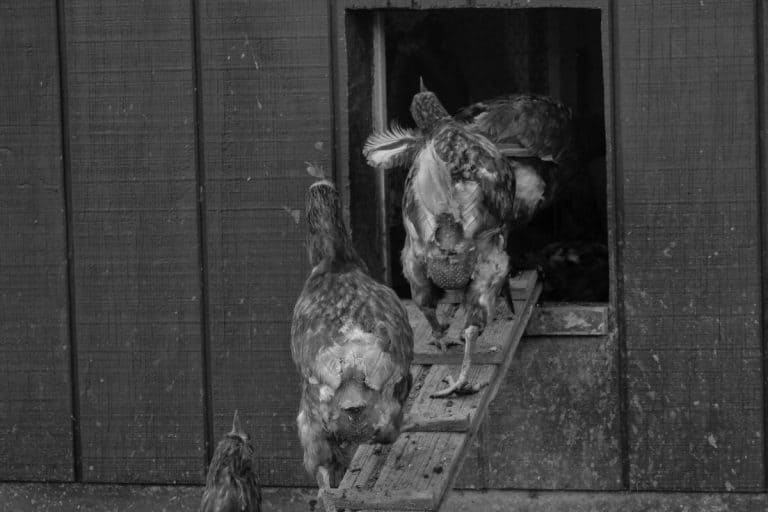What Does It Mean When A Chicken Lays On Its Side?
The first time I saw one of my chickens laying on its side, I immediately went into a full-blown panic and ran outside, only for her to jump up and walk away. Later, I learned that this terrifying behavior which has been referred to as a “death stretch” is actually completely normal. In the many years since then, I have seen chickens lay on their side countless times, and because I understand why they do it and what to look for, I no longer panic.
The most common reasons for a chicken to lay on its side are to sunbathe, dust-bathe, or simply rest a minute. These behaviors are extremely common for chickens, and should not be concerning so long as the chicken is still eating, drinking, and otherwise acting normally.
However, if a chicken is laying on its side and behaving abnormally, it can be a sign of injury or disease. The key to knowing whether your chicken is relaxing in the sun or seriously ill will be how familiar you are with their normal appearance, health, and behavior.
This is similar to when you go to the doctor for your annual check-up; being familiar with what is normal makes it that much easier to see when something is wrong, and treat it! Using this guide, you will not only learn about why chickens lay on their side, but also when you should worry and how to take action.
Hey chicken buddies: Quick heads-up before going further! I've put together a list of stuff I use and love for my flock. If you're curious about what keeps my hens happy, click here to find out.
Why do chickens lay on their side?
As mentioned above, chickens lay on their side for a variety of reasons, some good and others bad. Here are some of the most common reasons and meanings of this odd behavior.
Sunbathing
A chicken will often lay on its side and even stretch out its wings when it is sunbathing. Just like humans, chickens enjoy the feeling of the sun on their bodies and will sprawl out to soak up the heat from the ground.
The UV rays from the sunlight also provide chickens with a good source of vitamin D. Vitamin D is vital not only for the chicken’s bone strength and egg-laying capabilities, but also to ‘activate’ the oils from the preen gland that keep feathers clean and healthy.
Sunbathing can be done on any sunny day, but is most common during the warmer months of the year. It is also normal to see chickens dust bathe, preen, fluff up their feathers, or even appear to doze off while they are sunbathing.
Dust-bathing
Dust bathing is a behavior done by chickens to clean the feathers and remove mites, lice, and other parasites from the chicken’s skin and feathers. Chickens often choose fine sand or loose dirt to dust bathe in and after some time, the chicken’s favorite spots will develop deep “bowls” they can lay in.
Some chicken owners choose to create a specific spot for their chickens to dust-bathe using a tire or other circular structure and filling it with a material of their choice. Adding small amounts of wood ash and dried herbs to your chicken’s dust bath can be beneficial to their skin, feathers, and overall health.
As a communal activity, dust bathing will often be done in numbers and in conjunction with sunbathing and preening.
Resting/ Sleeping
Although this behavior is more common in young chicks, it can be seen in adult chickens too.
Growing up is hard work, and takes up a lot of energy. Chicks tend to fall asleep almost instantly, and similarly to young children, they may often fall asleep in strange positions. Typically, they will only sleep like this for a few minutes at most before they are disturbed or wake up on their own.

Adult chickens can be seen both resting and sleeping on their side, depending on factors like how comfortable they are in their environment and the temperature outside. Laying on their side to rest or sleep is fine for chicks and adult chickens, so long as they seem well and are otherwise behaving normally.
Injury
Despite this being the first thing we all imagine when we see a chicken laying on its side, it is actually less common than you would think.
When a chicken becomes injured, it is either the type of injury that is not life-threatening, essentially an inconvenience, or a major injury that often leads to death shortly after.
In the first type of injury, the chicken is likely not feeling its best and is simply resting. It is common for chickens to peck, bite, or even scratch other chickens in their flock, and these open, sometimes raw wounds can become infected if not treated. Chickens are also prone to foot injuries like bumblefoot, broken or sprained toes, and damaged nails or spurs.
The more major, sometimes fatal injuries are usually the result of being mauled by a dog, coyote, bobcat, or predatory bird. The damages can range from lacerations and puncture wounds to broken bones and other crush injuries.
Illness
Although it can be normal for chickens to lay on their side, it can also be a sign of illness. The best indicator that something is truly wrong will be the presence of abnormal appearance or behaviors.
For appearance, you should begin by looking at the chicken’s comb; if it is usually bright red and if it has changed to pink, purple, black, or any other color, that can be a sign of illness. Another symptom to look for is drainage or swelling of the chicken’s eyes and nostrils, as both can be bad signs.
It can also be beneficial to look over your bird’s skin and feathers, since many animals slack on their self-care and begin to look disheveled when they are ill. Lastly, looking at your chicken’s poop, while a little gross, can give you great insight into their health, especially if there are obvious abnormalities like diarrhea, blood, mucus, or worms.
Sickly chickens will often behave unusually in addition to changes in appearance, so it is important to be familiar with their typical activities and patterns. If your chicken has stopped laying eggs, or the eggs have become misshapen, that could be an indicator that your hen is ill or not getting good nutrition.
You may also notice changes in appetite, activity levels, and even posture in chickens who are sickly. Chickens who are very ill may try to hide if they are able, so it is important to keep an eye out for anything unusual before it escalates.
Wait, I have some recommendations for you!
Before you go any further, I want you to take a look at some of the recommendations I've handpicked for you. I think these are essential items you should have for your chickens flock. You can check them out and buy them directly from Amazon.
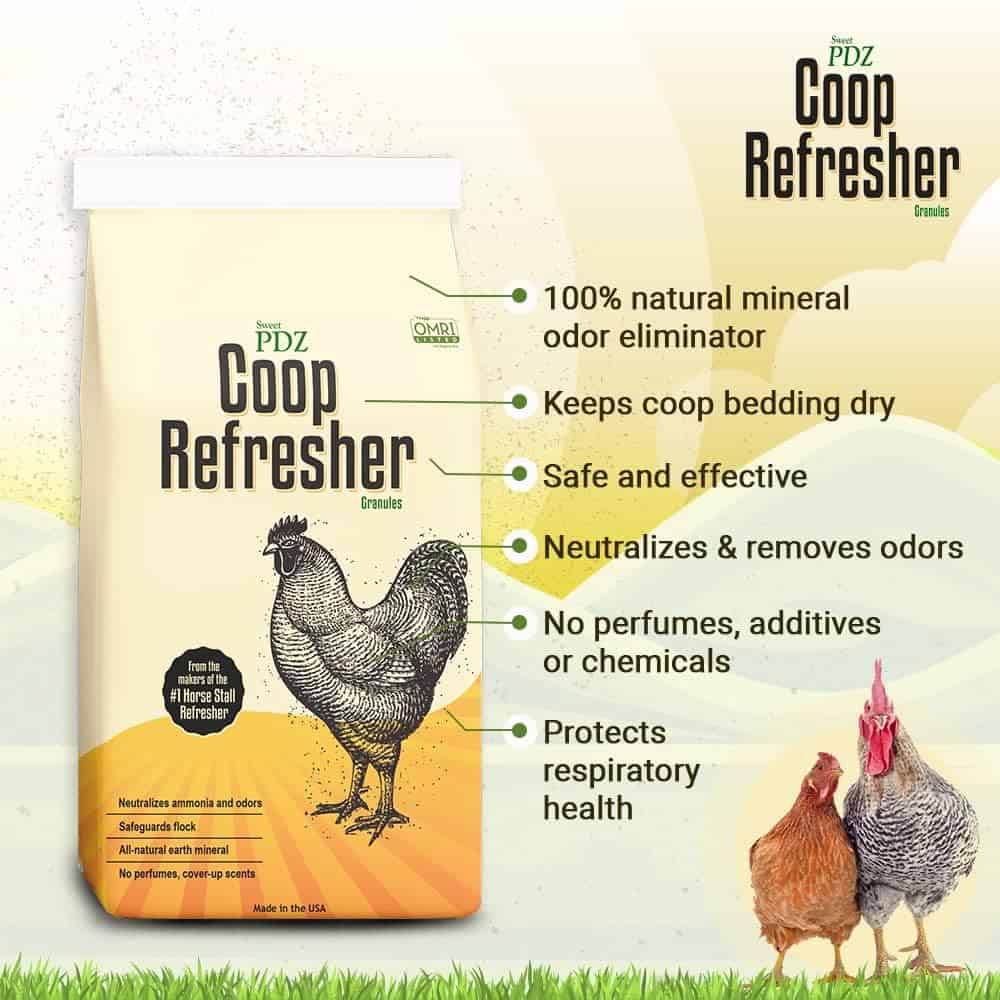 | 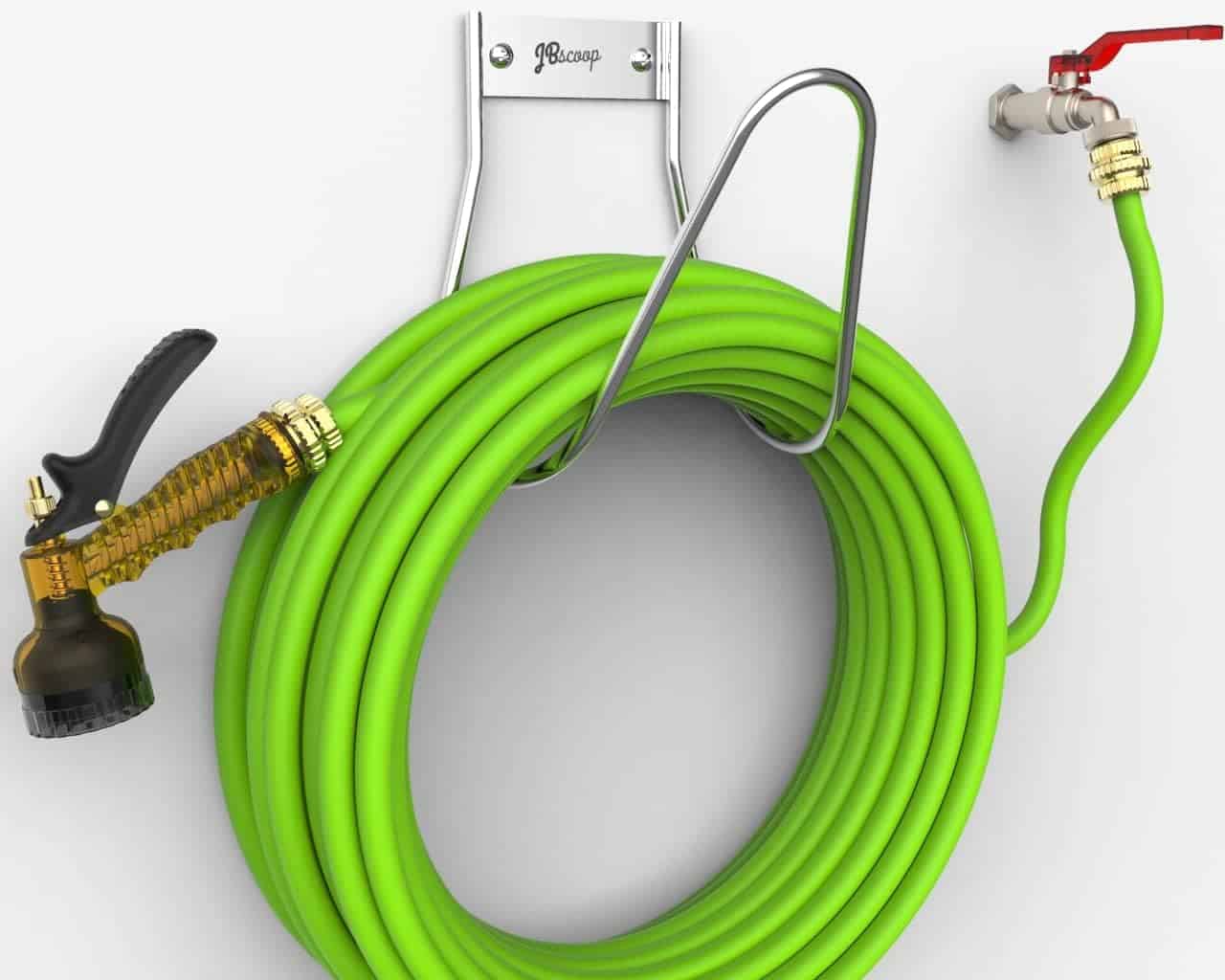 | 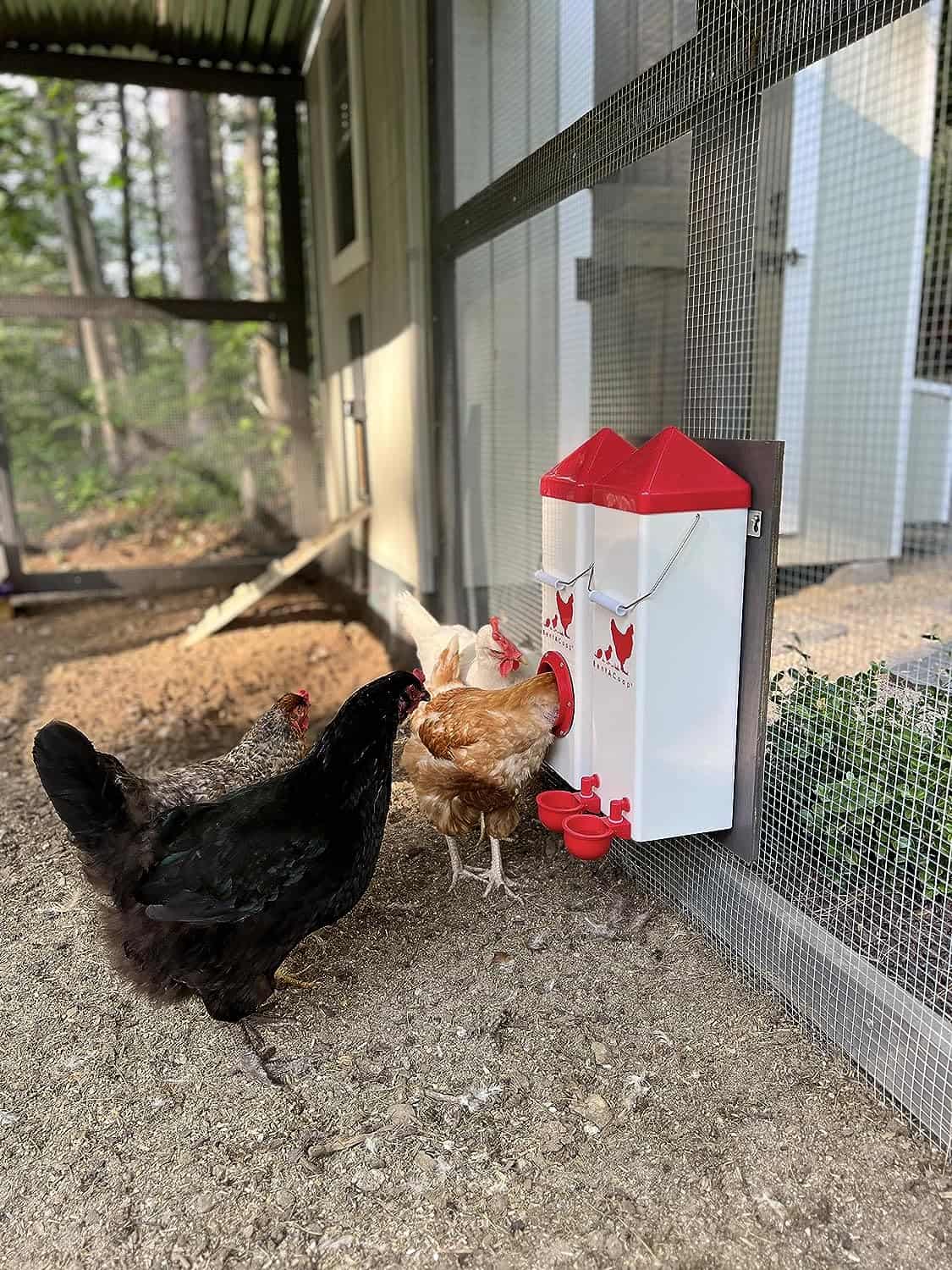 | 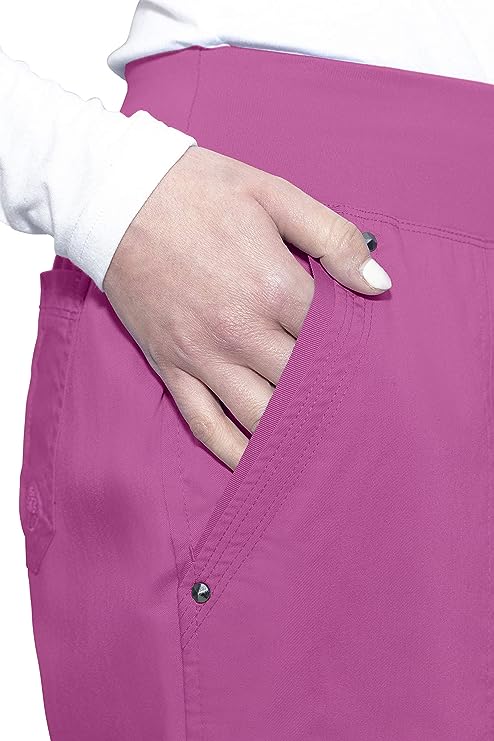 |
| Essential accessory for your coop | No more tripping over hoses! | Predator protection made easy | Comfort + style is possible |
What to do if your chicken is injured or ill?
The first thing to do if your chicken is injured or ill is to gauge the severity. Many issues can be treated at home with items you likely have on hand, but life-threatening injuries and serious illnesses may require a veterinarian’s care.
It is important to separate any birds suffering from an illness or injury from the rest of their flock to prevent the spread of any transmissible illnesses, and prevent further injuring of the bird by its flock mates.
For minor injuries like cuts or surface punctures, you should flush the wounds with hydrogen peroxide, iodine, betadine, or sterile saline, repeating if necessary to keep the area clean. Foot injuries like bumblefoot or internal issues like being egg-bound are frequently treated by soaking the chicken in a warm, saltwater bath.
Likewise, there are many illnesses you can treat your chicken for at home, provided you can correctly diagnose the problem. Your chicken’s nutrition is highly important and ensuring a healthy, balanced diet will ensure they don’t suffer from any deficiencies, or toxicities and additionally will help prevent and fight off other health issues.
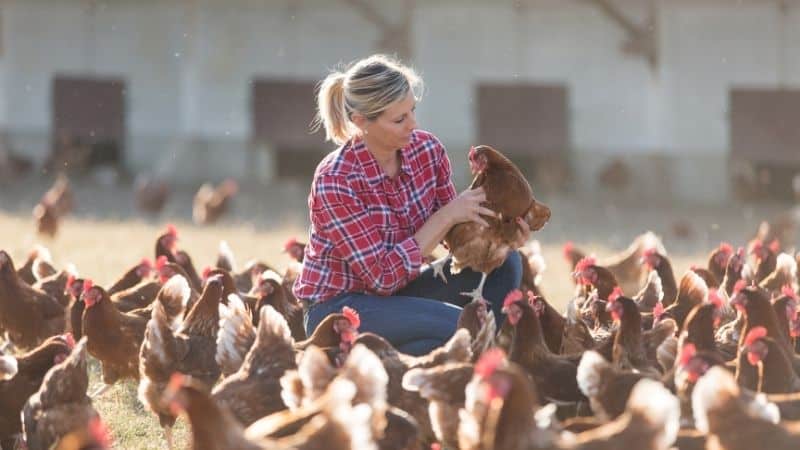
In severe cases of injury or illness, you should first try to decide if you think your bird will live to the foreseeable future, perhaps 30 minutes to a couple of hours. It is certainly a difficult decision to make, whether or not to fight for your bird’s life, but it’s important to know how to make that call.
If you suspect your bird will succumb to its illness or injury in the minutes to come, you can let it pass quietly on its own or do your best to ease its suffering as you prefer. If, however, you believe your bird can survive, you must act quickly to provide the best care and the highest chances of recovery.
- You should immediately refer to your veterinarian for his or her best advice regarding the situation, and have them come out if necessary.
- Start by separating the bird from its flock, and keeping her in a quiet, warm area to avoid shock, which can often be more deadly than the injuries themselves.
- You should stop any bleeding by holding pressure over the area and applying a wound dressing.
- Depending on your vet’s treatment plan, you may need to clean, redress and encourage the wound to heal for the next several days.
If your chicken is ill instead of injured, the veterinarian will likely prescribe medications to bring your bird back to health.

